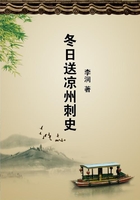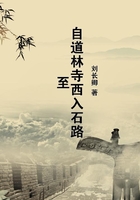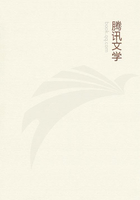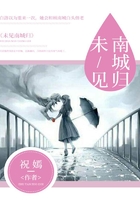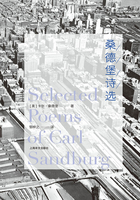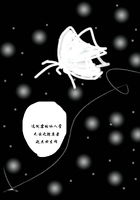From the office books and his talk with the foreman, Nekhludoff found that two-thirds of the best of the cultivated land was still being tilled with improved machinery by labourers receiving fixed wages, while the other third was tilled by the peasants at the rate of five roubles per desiatin [about two and three-quarter acres]. So that the peasants had to plough each desiatin three times, harrow it three times, sow and mow the corn, make it into sheaves, and deliver it on the threshing ground for five roubles, while the same amount of work done by wage labour came to at least 10 roubles. Everything the peasants got from the office they paid for in labour at a very high price.
They paid in labour for the use of the meadows, for wood, for potato-stalks, and were nearly all of them in debt to the office.
Thus, for the land that lay beyond the cultivated fields, which the peasants hired, four times the price that its value would bring in if invested at five per cent was taken from the peasants.
Nekhludoff had known all this before, but he now saw it in a new light, and wondered how he and others in his position could help seeing how abnormal such conditions are. The steward's arguments that if the land were let to the peasants the agricultural implements would fetch next to nothing, as it would be impossible to get even a quarter of their value for them, and that the peasants would spoil the land, and how great a loser Nekhludoff would be, only strengthened Nekhludoff in the opinion that he was doing a good action in letting the land to the peasants and thus depriving himself of a large part of his income. He decided to settle this business now, at once, while he was there. The reaping and selling of the corn he left for the steward to manage in due season, and also the selling of the agricultural implements and useless buildings. But he asked his steward to call the peasants of the three neighbouring villages that lay in the midst of his estate (Kousminski) to a meeting, at which he would tell them of his intentions and arrange about the price at which they were to rent the land.
With the pleasant sense of the firmness he had shown in the face of the steward's arguments, and his readiness to make a sacrifice, Nekhludoff left the office, thinking over the business before him, and strolled round the house, through the neglected flower-garden--this year the flowers were planted in front of the steward's house--over the tennis ground, now overgrown with dandelions, and along the lime-tree walk, where he used to smoke his cigar, and where he had flirted with the pretty Kirimova, his mother's visitor. Having briefly prepared in his mind the speech he was going to make to the peasants, he again went in to the steward, and, after tea, having once more arranged his thoughts, he went into the room prepared for him in the big house, which used to be a spare bedroom.
In this clean little room, with pictures of Venice on the walls, and a mirror between the two windows, there stood a clean bed with a spring mattress, and by the side of it a small table, with a decanter of water, matches, and an extinguisher. On a table by the looking-glass lay his open portmanteau, with his dressing-case and some books in it; a Russian book, The Investigation of the Laws of Criminality, and a German and an English book on the same subject, which he meant to read while travelling in the country. But it was too late to begin to-day, and he began preparing to go to bed.
An old-fashioned inlaid mahogany arm-chair stood in the corner of the room, and this chair, which Nekhludoff remembered standing in his mother's bedroom, suddenly raised a perfectly unexpected sensation in his soul. He was suddenly filled with regret at the thought of the house that would tumble to ruin, and the garden that would run wild, and the forest that would be cut down, and all these farmyards, stables, sheds, machines, horses, cows which he knew had cost so much effort, though not to himself, to acquire and to keep. It had seemed easy to give up all this, but now it was hard, not only to give this, but even to let the land and lose half his income. And at once a consideration, which proved that it was unreasonable to let the land to the peasants, and thus to destroy his property, came to his service. "I must not hold property in land. If I possess no property in land, I cannot keep up the house and farm. And, besides, I am going to Siberia, and shall not need either the house or the estate," said one voice. "All this is so," said another voice, "but you are not going to spend all your life in Siberia. You may marry, and have children, and must hand the estate on to them in as good a condition as you received it. There is a duty to the land, too.
To give up, to destroy everything is very easy; to acquire it very difficult. Above all, you must consider your future life, and what you will do with yourself, and you must dispose of your property accordingly. And are you really firm in your resolve?
And then, are you really acting according to your conscience, or are you acting in order to be admired of men?" Nekhludoff asked himself all this, and had to acknowledge that he was influenced by the thought of what people would say about him. And the more he thought about it the more questions arose, and the more unsolvable they seemed.
In hopes of ridding himself of these thoughts by failing asleep, and solving them in the morning when his head would be fresh, he lay down on his clean bed. But it was long before he could sleep.
Together with the fresh air and the moonlight, the croaking of the frogs entered the room, mingling with the trills of a couple of nightingales in the park and one close to the window in a bush of lilacs in bloom. Listening to the nightingales and the frogs, Nekhludoff remembered the inspector's daughter, and her music, and the inspector; that reminded him of Maslova, and how her lips trembled, like the croaking of the frogs, when she said, "You must just leave it." Then the German steward began going down to the frogs, and had to be held back, but he not only went down but turned into Maslova, who began reproaching Nekhludoff, saying, "You are a prince, and I am a convict." "No, I must not give in," thought Nekhludoff, waking up, and again asking himself, "Is what I am doing right? I do not know, and no matter, no matter, I must only fall asleep now." And he began himself to descend where he had seen the inspector and Maslova climbing down to, and there it all ended.


